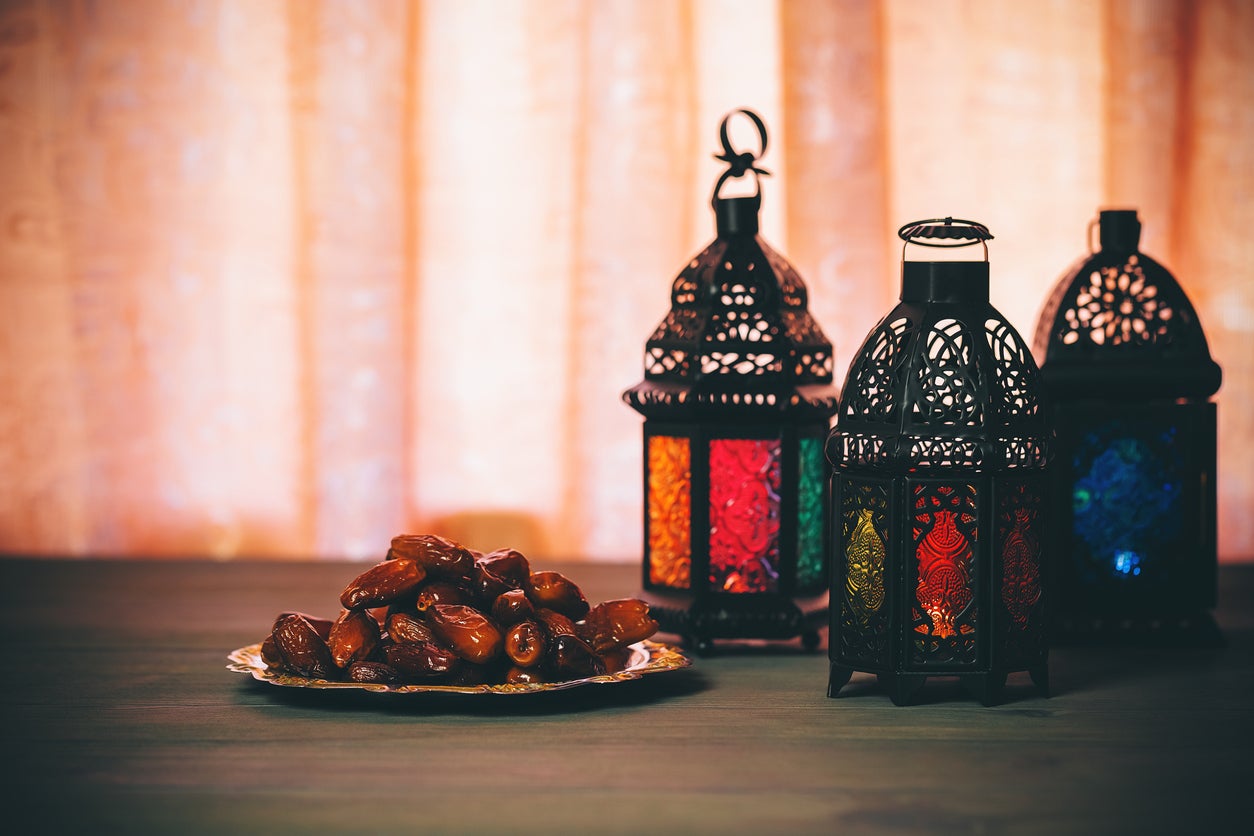The Independent's journalism is supported by our readers. When you purchase through links on our site, we may earn commission.
Ramadan 2020: How to fast responsibly during the Muslim holy month
Ramadan is the ninth month of the Islamic calendar

The Muslim holy month of Ramadan commemorates the first revelation of the Quran to the Islamic prophet Muhammad.
Over the course of the month of Ramadan – the ninth month of the Islamic calendar – Muslims fast from dawn until sunset, forgoing any food or drink until their nighttime meal.
When fasting throughout the entire day, it's important to ensure that the body is hydrated and energised so as to better cope with the deprivation.
There are a number of ways to keep overall health in check while fasting, from keeping an eye on salt intake to doing light exercise.
Here’s how to fast responsibly during Ramadan, according to the experts:
Hydrate
Drinking a decent amount of water in the evening is essential during Ramadan, especially as it falls during the warmer months when the days are longer and the temperatures are higher.
Yasmin Badiani, a physiotherapist and head of sport at Phizz, recommends drinking at least eight glasses of water in between iftar (the time when the fast is broken at sunset) and suhoor (the time before sunrise).
“Avoid caffeinated drinks as they are diuretic and increase water loss via urine,” Badiani adds.
“Fizzy drinks too are not a good source of hydration, as they can often slow down the digestive process.”
It could also be worth adding electrolytes to your water, as they can help replenish your body’s store of vitamins.
Avoid fried food
When an individual has spent their whole day not eating, it can be incredibly tempting to indulge in fast food when sunset comes around.
However, consuming food that isn’t nutritious can lead to bloating and fatigue the next day.
“At a time where we only have a few hours to get our balanced diet of fruits, vegetables and protein, make sure you turn to something which has higher nutritional value,” Badiani advises.
“Fried foods are one of the key reasons why people feel sluggish and bloated after fasting as the stomach is very sensitive to rich food.”
Do light exercise
While it isn’t recommended that a person does exercise that’s too rigorous while fasting, there’s no reason why they can’t exercise during Ramadan if they do so sensibly.
“It’s vital to remember that your body won’t have the same amount of energy that you would have on a normal day,” explains Ayazullah Safi, assistant lecturer and PhD researcher in the department of sport and exercise at Birmingham City University.
“People should try to maintain active lifestyles where possible but during Ramadan light exercises such as walking, full body stretching, mat exercises as well as meditative exercises are highly recommended as this can help to keep the system working and blood circulation.”
Safi suggests avoiding workouts that involve any exercises that are too intense, such as sprinting and heavy lifting.
Doing high intensity exercise while fasting can lead to low blood pressure, dizziness and even cause injury, so it’s essential to take care.
Watch salt intake
Consuming too much salt when the fast is broken in the evening can have detrimental consequences the next day, Safi states.
This is because a high salt intake is likely to increase thirst, which isn’t ideal during the fast of Ramadan.
Anyone observing the fast should try to keep an eye on salt intake, whether in the form of table salt sprinkled on their food or as an ingredient integrated into a cooked dish.
It’s traditional for many Muslims to break the fast with a date, due to the belief that the Islamic prophet Muhammad broke the fast with three dates.
Practise healthy habits
Refraining from consuming any food or drink during the day can make Ramadan a great opportunity to practise self-restraint and take up healthy habits.
“Ramadan is not just about fasting, but just as importantly, it’s about self-control and improving yourself,” says Badiani.
“Cigarettes and shisha are not conducive to a healthy lifestyle as it has detrimental effects on the body, both physically and mentally.
“There’s no better time to give up smoking than in Ramadan when you have to already go most of the day without a cigarette!”
Furthermore, if you’re unwell, pregnant or have any other health concerns, Badiani recommends consulting with a GP before fasting.
Muslims who observe Ramadan typically start fasting when they reach adolescence.
Individuals exempt from fasting include those who are too ill to fast, the elderly, those suffering from a mental illness, and women who are pregnant or breastfeeding.
Join our commenting forum
Join thought-provoking conversations, follow other Independent readers and see their replies
Comments
Bookmark popover
Removed from bookmarks